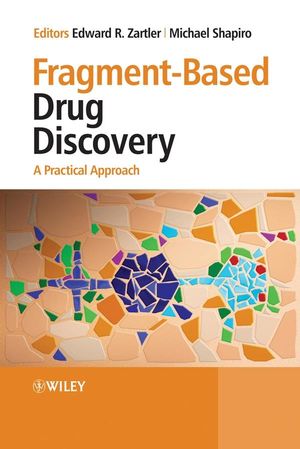Fragment-Based Drug Discovery: A Practical ApproachISBN: 978-0-470-05813-8
Hardcover
296 pages
December 2008
 This is a Print-on-Demand title. It will be printed specifically to fill your order. Please allow an additional 10-15 days delivery time. The book is not returnable.
|
||||||
Fragment-based drug discovery (FBDD) is a new paradigm in drug
discovery that utilizes very small molecules - fragments of larger
molecules. It is a faster, cheaper, smarter way to do drug
discovery, as shown by the number of pharmaceutical companies that
have embraced this approach and the biotechnology companies who use
fragments as their sole source of drug discovery.
Fragment-Based Drug Discovery: A Practical Approach is a guide to the techniques and practice of using fragments in drug screening. The emphasis is on practical guidance, with procedures, case studies, practical tips, and contributions from industry. Topics covered include:
- an introduction to fragment based drug discovery, why using fragments is a more efficient process than predominant models, and what it means to have a successful FBDD effort.
- setting up an FBDD project
- library building and production
- NMR in fragment screening and follow up
- application of protein-ligand NOE matching to the rapid evaluation of fragment binding poses
- target immobilized NMR screening: validation and extension to membrane proteins
- in situ fragment-based medicinal chemistry: screening by mass spectrometry
- computational approaches to fragment and substructure discovery and evaluation
- virtual fragment scanning: current trends, applications and web based tools
- fragment-based lead discovery using covalent capture methods
- case study from industry: the identification of high affinity beta-secretase inhibitors using fragment-based lead generation
With contributions from industry experts who have successfully set up an industrial fragment-based research program, Fragment-Based Drug Discovery: A Practical Approach offers essential advice to anyone embarking on drug discovery using fragments and those looking for a new approach to screening for drugs.



